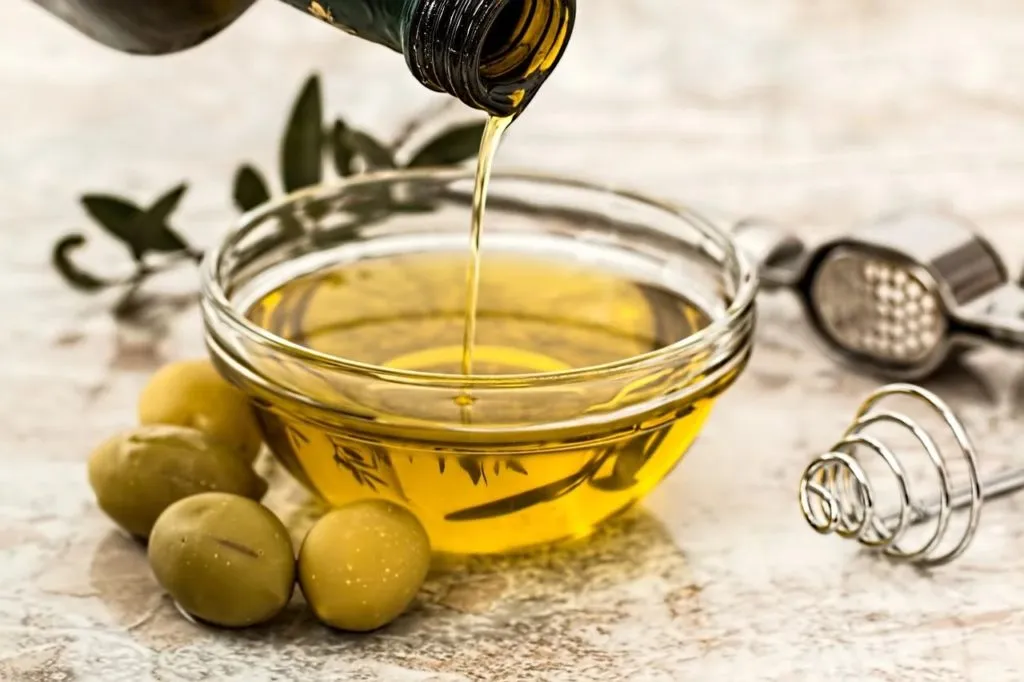Wood-pressed and cold-pressed cooking oils are a popular choice, generally for chefs and domestic cooks around the world. Regardless of whether you’re roasting a tray of potatoes on a Sunday afternoon or want to experience the vibrant colours and flavours of a Mediterranean diet, you’re likely choosing one or the other to cook or dress your food with. But what’s the difference between the two, what are their benefits and what are the fundamentals that you need to know about each type of cooking oil? Let’s delve deeper:
What is wood-pressed cooking oil?
As the name would suggest, a wood-pressed cooking oil is extracted with the help of a wooden pestle. It’ll press and crush the seeds in order to extract the oil. In addition to the use of a wooden pestle, it also uses a wooden collector in order to press and collect the oil that’s needed for cooking.
Despite being a wood-pressed oil, it’s done at a low temperature, therefore making it a cold-pressed oil as well as a wood-pressed one. The whole process is carried out at around 40 degrees.
Should there be an increase in temperature, the additional heat is actually absorbed by the wooden pestle, which is a great way of regulating the temperature that the extraction is carried out at.
What are the benefits of wood-pressed oil?
There are multiple benefits to be had by choosing a wood-pressed cooking oil as a staple in your kitchen, whether it be a kitchen at home or a commercial one. From being a generally healthy choice to helping to prevent issues of gum disease, here’s everything you can benefit from when you choose a wood-pressed cooking oil, according to Yugansh:
- It’s free from chemicals
- It’s free from preservatives
- It promotes improved blood circulation
- It maintains healthy skin and hair growth
- It can aid in heart disease prevention
- It can help to stop premature ageing
- It’s loaded with antioxidants
- It prevents gum disease
What is cold-pressed cooking oil?
Cold-pressed cooking oils can be used in different extraction methods. Instead of a wooden pestle, it’s made from either steel or iron and the entire process is carried out at a low temperature, hence why it’s dubbed ‘cold-pressed’ oil. During the process, seeds are slowly pressed in an extractor in order to crush them without the need for any heat at all. While it might comprise some impurities, cold-pressed cooking oils are still considered to be healthy.
It won’t surprise you to know, as a result of this information, that most cooking oils are, in fact, cold-pressed. You’ll be able to check if the cooking oil you have is cold-pressed by pouring some onto a spoon, placing it in the fridge and leaving it there for about an hour or so. If the oil seemingly solidifies, then it’s a cold-pressed cooking oil, most likely. Some example of cold-pressed cooking oils are as follows:
- Virgin olive oil
- Sesame oil
- Groundnut oil
- Virgin coconut oil
- Rapeseed oil
- Macadamia oil
- Walnut oil
- Avocado oil
- Safflower oil
- Hemp seed oil
- Flaxseed oil
- Poppy seed oil
What are the benefits of cold-pressed oil?
When it comes to cold-pressed cooking oils there are several benefits to be had by using it at home in your kitchen. While some might be the same as a wood-pressed cooking oil, here’s how a cold-pressed cooking oil would be advantageous to you, whether you’re the cook or the person eating the food:
- It’s free from preservatives
- It’s free from chemicals
- It’s high in the following: fatty acids, antioxidants and vitamins E, K and C
- It can reduce blood pressure, according to the Healthline
- It can alleviate health issues like dementia and Alzheimer’s, claims Medical News Today
- It’s the better choice for those who are diabetic, states Borderfields
- It reduces cholesterol levels, claims the Healthline
Wood-pressed vs. cold-pressed: everything you need to know about cooking oils
While there are similarities between the extraction process of both oils, there are still fundamental differences between them both. One of the first major differences is that a cold-pressed cooking oil comprises a broader spectrum of extraction methods.
However, wood-pressed cooking oil can only be extracted via wooden pestles. Although, despite this, a wood-pressed oil can also be referred to as a cold-pressed oil. This is because wood-pressed oil can be extracted in one of the same ways as a cold-pressed oil can be. But where a wood-pressed oil can be referred to also as a cold-pressed oil, the same thing doesn’t work the other way around.
Having said that, both oils are actually healthy for you, regardless of the method of oil extraction. Unlike cold-pressed oil, a wood-pressed oil can only be extracted with a wooden pestle. This is, essentially, the major difference between a cold-pressed oil and a wood-pressed oil.
Here at Cater Oils, we are able to provide restaurants and other establishments with a fresh supply of cooking oil, including vegetable, sunflower and more. In addition, we also have waste cooking oil collection services available, which are entirely free. We will even give you cash for the waste oil you provide, or you can exchange it for a new supply of cooking oil – whichever you’d prefer. If you’d like further information about the services we have available, get in touch with us today – we’re always happy to hear from you.






